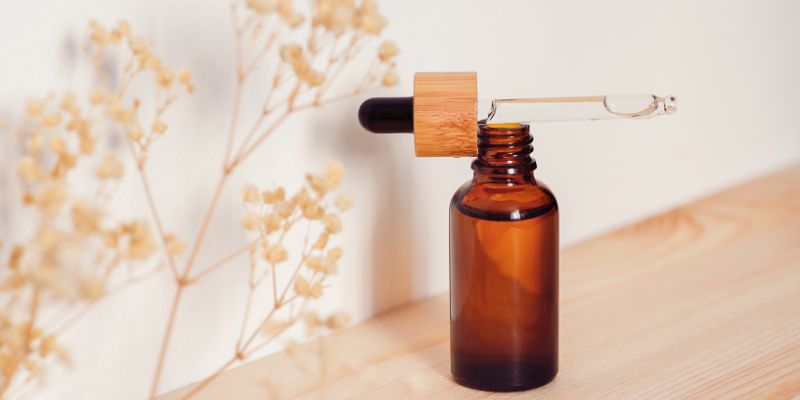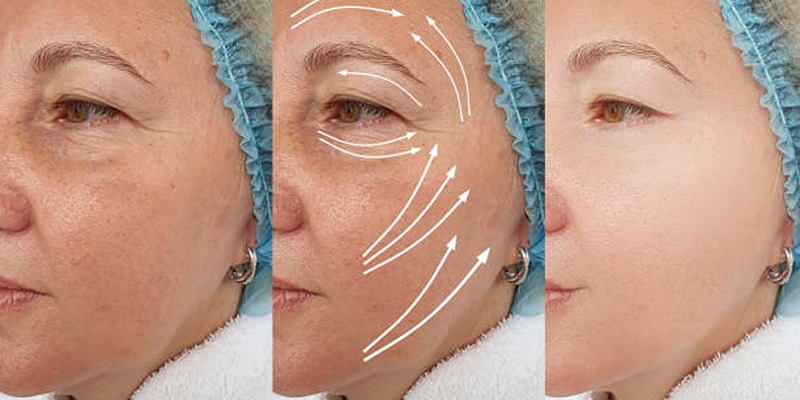Advertisement
AHAs and retinol, when combined in skincare, can produce amazing effects. Alpha hydroxy acids (AHAs) remove dead skin cells from the face, making it smoother and brighter. One form of vitamin A, retinol, increases cell turnover and helps slow down aging symptoms.
Many people are looking for young, radiant skin and a safe AHA and retinol skincare regimen. Reaching benefits without sacrificing skin health depends on knowing how to layer and balance them. This guide covers everything you need to combine AHA and retinol successfully.

From fruit and milk, water-soluble exfoliants known as alpha hydroxy acids (AHAs) abound. They smooth out and evenly cleanse the skin by helping to eliminate dead skin cells from the surface. Popular possibilities are AHAs, which include lactic acid and glycolic acid. They are said to erase dark spots, brighten complexion, and smooth fine wrinkles. AHAs can also boost skin suppleness and increase collagen creation.
AHA usage helps those with dry or sun-damaged skin most of all. Including AHAs into a regimen helps the skin be ready for further treatments and facilitates greater absorption of skincare products. Understanding how AHAs operate can help you include them effectively in your skincare regimen. AHAs are a mild approach to improving your complexion, whether your skin is dull or you desire a new look.
The popular anti-aging agent retinol is a variation of vitamin A. It encourages cell turnover, enabling the skin to shed old cells and produce fresh ones. This procedure smoothes fine lines and minimizes wrinkles, giving the skin more firmness. Retinol also closes pores, which might stop acne flare-ups. It also helps to balance skin tone, therefore lessening discoloration and rough spots.
Frequent retinol use promotes collagen synthesis, a crucial component of preserving skin's suppleness. However, even if it is effective, retinol can cause skin irritation, particularly on first use. Retinol is appropriate for many skin types; however, gently starting is really vital. Knowing its effects guarantees you may utilize retinol to acquire a firmer, younger-looking face free from discomfort.
Combining retinol with AHA raises the risk of inflammation. Both components encourage exfoliation, which, if overdone, could lead to dryness and redness. Taken together, they might cause over-exfoliation, which compromises the skin barrier. The skin may thus become more vulnerable to environmental harm. Furthermore, both AHA and retinol increase sun sensitivity, which increases the danger of sunburn and sun damage.
Overuse manifests as extreme dryness, peeling, and irritation. Many people alternate their use or consult a dermatologist to minimize these hazards. If you're trying to mix these components, you should start slow and track how your skin responds. Knowing these possible problems will help you enjoy the advantages of both components without endangering anything.

Start your regimen by introducing one product at a time to properly use both AHA and retinol. Start with AHA several evenings a week. Add retinol on opposite evenings once your skin starts to change. One other choice is to use retinol at night and AHA first thing in the morning. That divides their usage and lowers their irritability risk. First, always gently cleanse to get the skin ready for these active components.
Follow with a moisturizer to guard your skin barrier. Additionally, selecting a moisturizer with moisturizing components such as niacinamide or hyaluronic acid can help increase skin tolerance. Your skin's reaction will help you make the necessary adjustments. Should discomfort arise, cut back on use or seek advice from a skincare professional for specific direction. Without running the danger of over-exfoliating, this slow method will let you appreciate softer, more radiant skin.
Below are the signs you need to look for:
Combining AHA and retinol will help your skin. Knowing how to layer, check, and balance these components guarantees safe and efficient AHA and retinol skincare. Give hydration top priority; check your skin, and remember Sunscreen for the best effects. See a skincare expert to help customize the regimen to your requirements. These ideas will improve your skincare and help you have a better, more brilliant complexion.

By Georgia Vincent/Apr 02, 2025

By Nancy Miller/Apr 16, 2025

By Juliana Daniel/Feb 19, 2025

By Madison Evans/Oct 24, 2024

By Jennifer Redmond/Dec 14, 2024

By Susan Kelly/Oct 09, 2024

By Madison Evans/Apr 01, 2025

By Elva Flynn/Mar 17, 2025

By Elena Davis/Jan 08, 2025

By Isabella Moss/Dec 15, 2024

By Triston Martin/Dec 07, 2024

By Elva Flynn/Dec 07, 2024